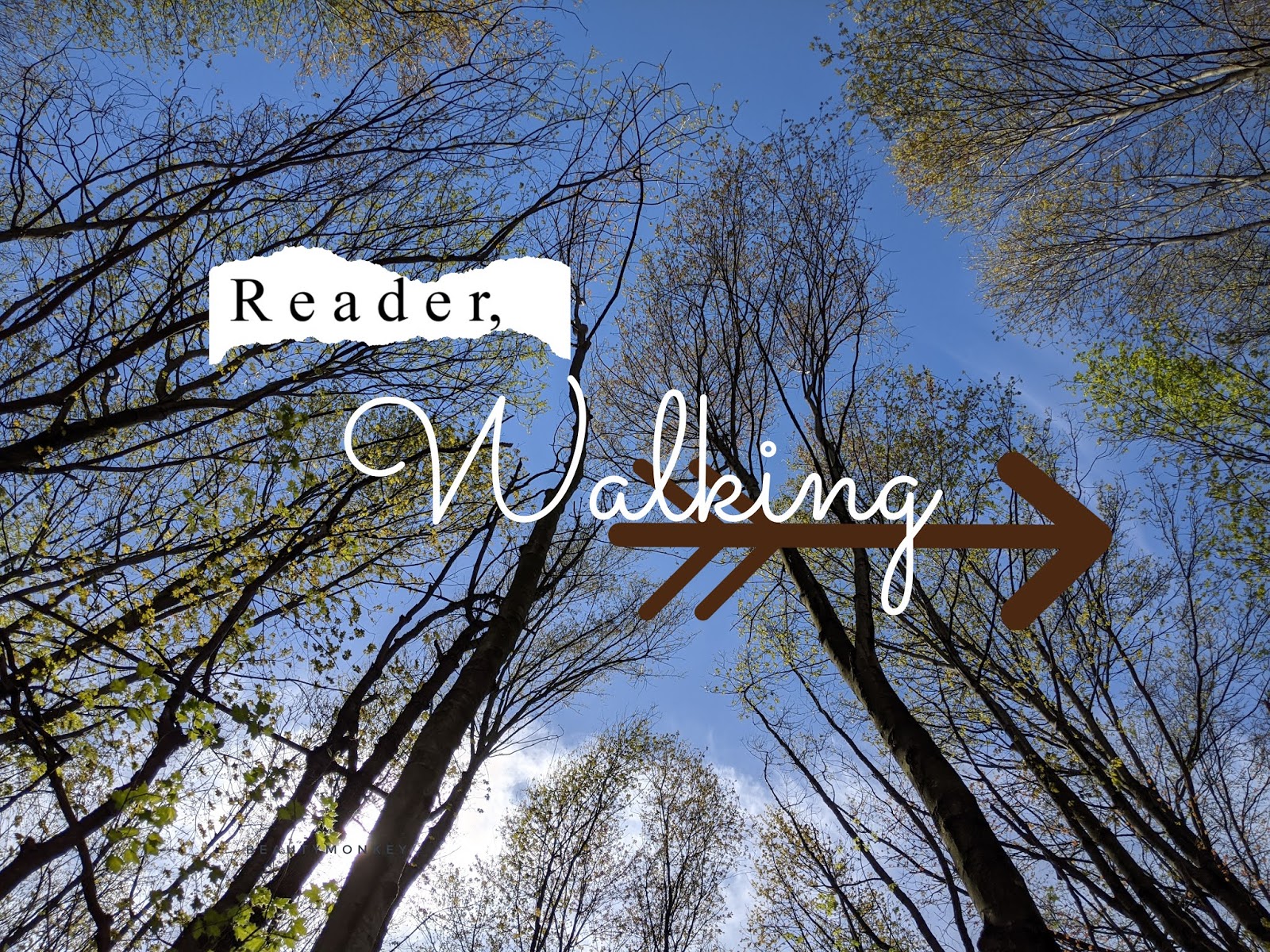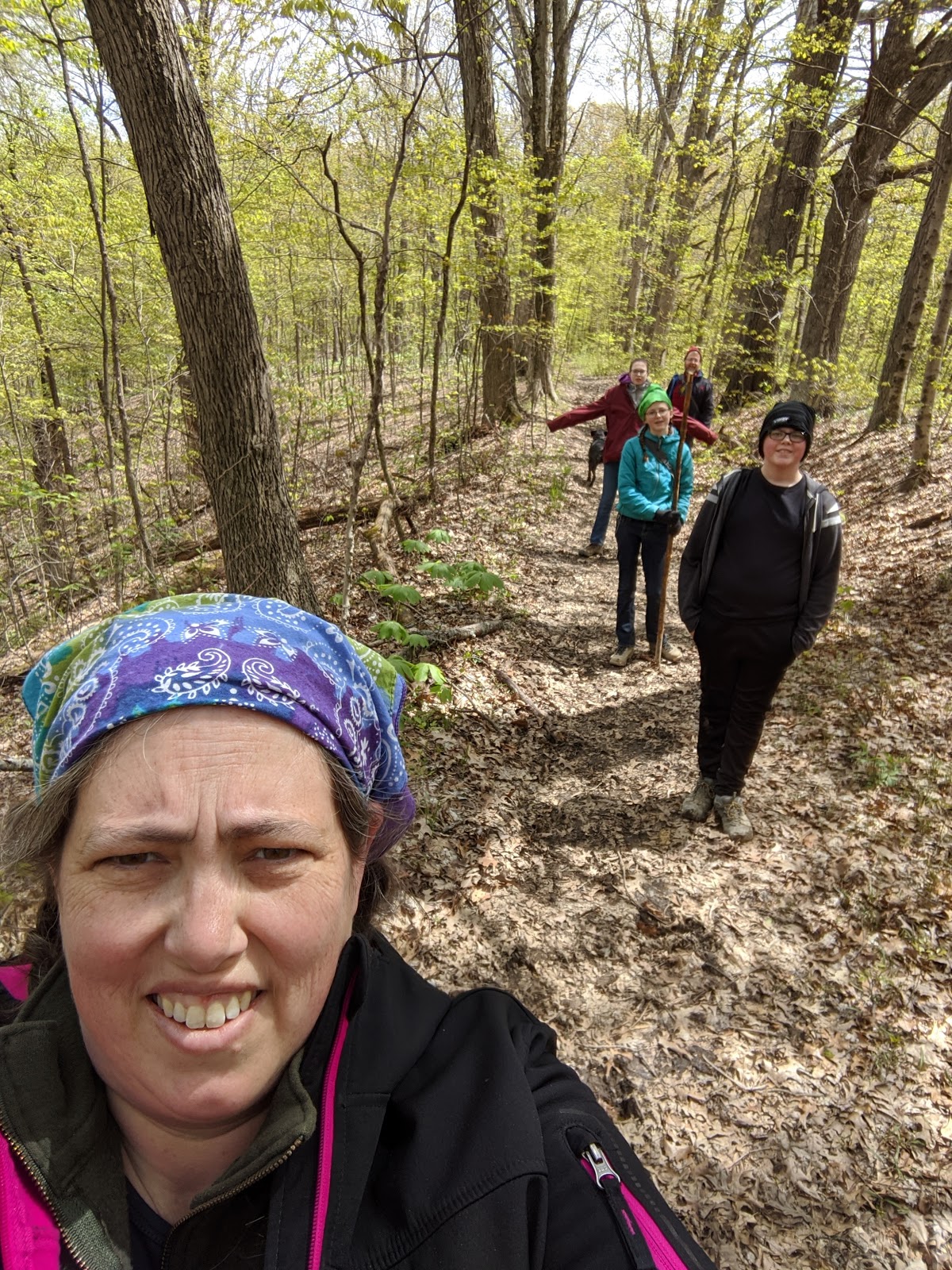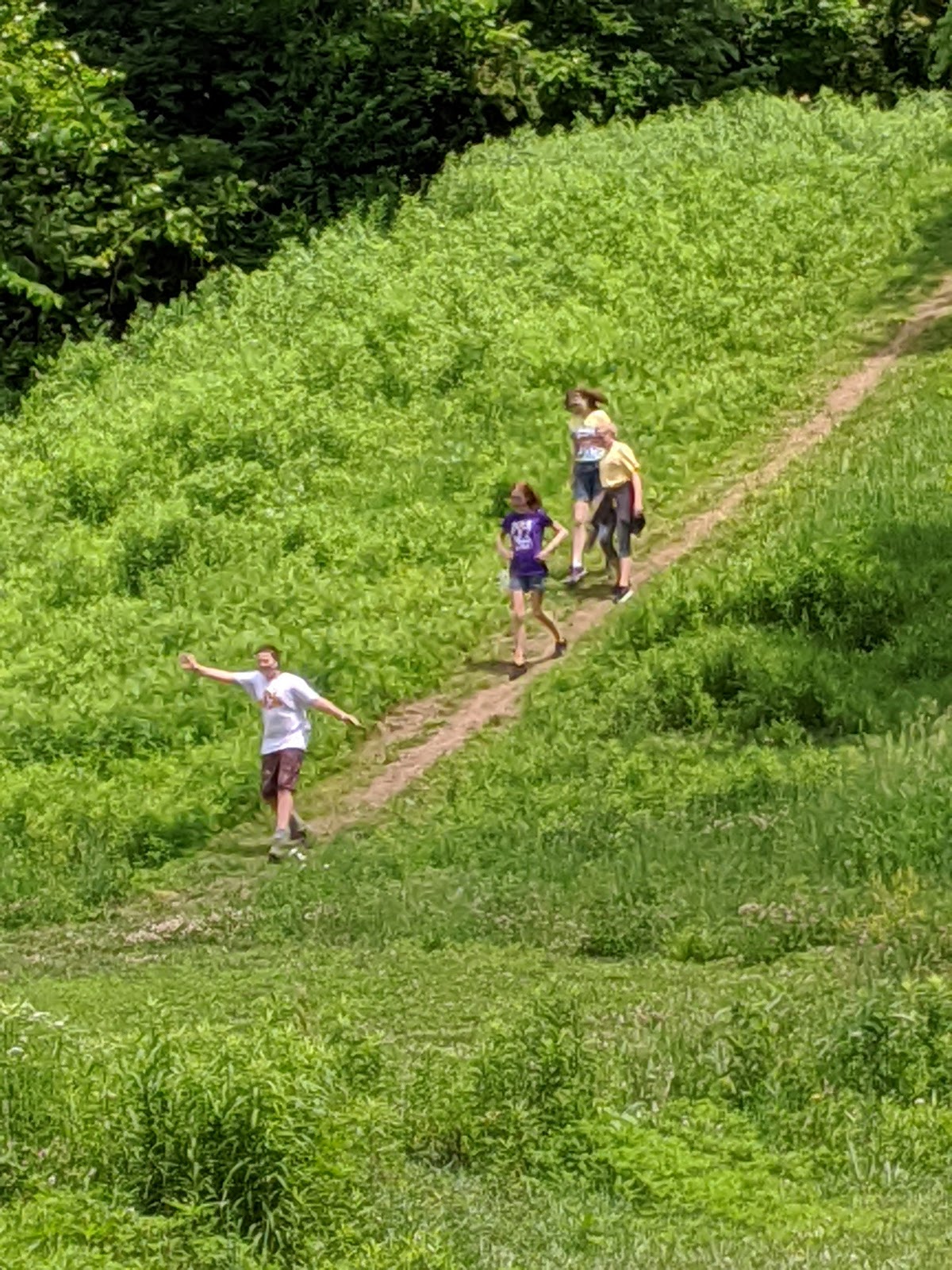Fighting Gravity

We don’t actually have a lot of real hills in Central Ohio. I took an hour long walk in the neighborhood this morning and Strava tells me I had a 39 foot elevation gain.
The local state park where we do most of our hiking has slightly more varied terrain. It’s around a reservoir and there are ravines and water inlets where we have to walk down and then up, but still an hour and twenty minute hike on Saturday had only a 323 foot gain.
That isn’t to say that I look forward to the uphills, slight though they may be. I don’t.
I’ve found that going uphill, fighting gravity, the best thing I can do is focus on my feet and the steps right in front of them, looking down and power through. I’ve learned that momentum will carry me uphill and to the top, but if I stop I have to rebuild the momentum and willpower to carry on. At the top, I can look back to see what I missed, but stopping mid climb is always a bad idea for me. My legs will hurt, my breathing will be heavier, but still there’s an accomplishment to making it up the hill.
 |
| I was “uphill” here, Promise. |
A hard book often works like going uphill. Sometimes you need to just watch the step ahead of you and power through. Sometimes you need to let the momentum carry you through the sentence, paragraph, section, or chapter. Sometimes even through the book. Sometimes you need to just get one idea from the first read of a challenging book. The surrounding context, the allusions, the figuring out of each sentence and nuance will bog you down so you stop and can’t move forward.
That has happened to me more times than I can count. I think of The Abolition of Man and how it took me 4 readings of the first essay to understand it. The first time, all I heard was irrigating deserts – which is, admittedly, a worthwhile idea to ponder. This past winter, I read Paradise Lost for the first time. That said, I read along while I listened to Steven Vance read it via Audible. The narration kept me moving and not looking up all the details constantly, but the book before my eyes kept the narration from becoming an ignorable drone in my ears. When we read Plutarch, we sometimes go sentence by sentence, but other times we have more success reading a paragraph or section in Anne White’s guides and getting the “bigger picture” sense of that part of the story. Momentum and follow through help when the book is a challenge.
And, just like the hills, every time we practice, we gain more stamina for the next big hill book. We can fight the gravity because we have success and practice behind us.
The same is true of those runaway downhill books. Where the ideas are coming fast and furious and easily and my mind becomes a jumble and there I go cartwheeling through and have no idea what I’ve read at the end.

If I would take my time to plant my feet and take in the ideas carefully as they come. When I take a moment to think about the context and allusions, to interact with the ideas, those books can take on a whole new sort of meaning in my life. I can exercise less used muscles to practice skill and not allow myself to be just run ragged. Here, too, I fight the gravity that is more harmful to my thought life than I might first believe.
I’ve read a lot of Madeleine L’Engle in the past two years and she often talks about similar ideas in different ways. Those well worn paths are becoming a bit more and more downhill with each book. I have to be careful to not think to myself, “there she goes again” and to really make sure I understand all that she is saying each time she revisits identity or naming or ontology or …
Brandy recommends having different kinds of books going at the same time. Her recommendation, based on a Parent’s Review article, is to have a stiff book and a moderately easy book and a novel going at once so you can always pick up what is appropriate for the current time. This is because even a moderately easy book – whatever that is for you – has something to say and is worth reading. Just don’t let yourself run downhill so quickly with it that you have no idea what you just finished reading.
Fight Gravity.

Beautifully spoken!